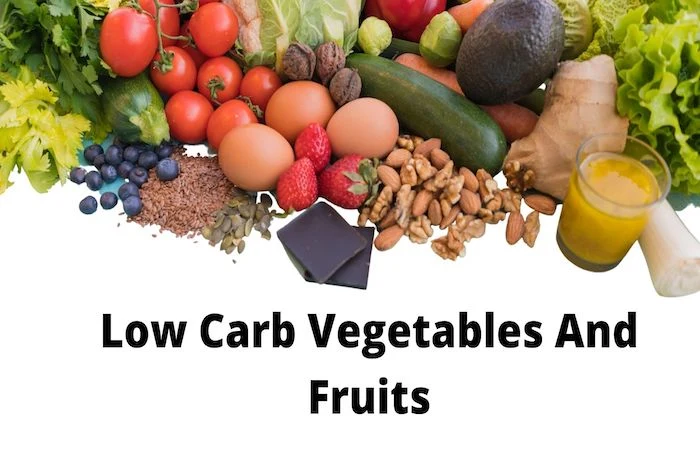
Raw Vegetables and fruits and are generally low in calories and fat, but they comprise unstable amounts of sugars and carbohydrates. For people trying to regulate their intake, carb quantity is valuable to identify.
The study reveals that consuming a spectrum of raw vegetables and fruits can help ameliorate the danger of the most prevalent factors of death and disease, including type 2 diabetes, cancer, and heart disease. (1)
Different eating plans and diets mandate a specific carb intake. People trailing the ketogenic diet, for instance, intend to consume between 20–50 grams (g) of carbohydrates from 2,000 calories each day. (2)
Consuming the subsequent vegetables and fruits can enhance vital nutrients, color, and flavor without terminating the health functions of a low-carb diet.
We will be identifying 30 low-carb fruit and vegetable options, as you glance through these items.
Low Carbs Vegetables and Fruits: Facts You Should Know
Vegetables and fruits are vital for an adequate diet and a healthy body, but more often than not, we don’t get enough daily. Consuming them will help give us the vitamins and minerals we require to be healthy.
The popular misconception is that you should refrain from all fruits and quite a limited vegetables while on a low carb diet or Keto, but the fact is – it is not required you have to shun it completely, the ketogenic diet will allow you to consume fruit as long as you make the right selections.
How can you tell how much of this food group you can and should have while trying to still lose weight while following your diet?
Sugar and carbs, carbs and sugars, go along concurrently. Specific fruits can be exceptionally high in sugar and some vegetables have lots of carbs and should be resisted on a low carb diet, specifically those with type 2 diabetes.
Read: Best Low Carb Snacks for Diabetics
Best 15 Low carb Vegetables List
Commonly, most vegetables that develop underground—are known as root vegetables—and specific vegetables, like peas and corn, comprise more starch, an arduous carbohydrate, than additional vegetables, says Katie Chapman, MS, RD, a Pasadena, California-based dietitian.
These higher-carb vegetables are also called “starchy” veggies, which comprise seven-plus grams of net carbs (that is total grams of carbohydrates minus grams of fiber, an indigestible carbohydrate our bodies can’t break down) per serving. (3) If you are regulating your carbohydrate consumption (like on a keto diet or low-carb), however, you will want to clasp to even lower-carb vegetables (also known as “non-starchy” vegetables), which include about five or fewer grams of net carbs per serving. While all kinds of vegetables match the low-carb bill, you can generally deduce that anything green and leafy is good to go, Neva explains.
In all clarity, all vegetables comprise carbohydrates, which the body breaks down into sugars it expends for fuel. While many low-carb eaters switch out vegetables for foods that comprise protein or fat (like animal protein or nuts), low-carb vegetables play a significant part in any healthy diet—including one that curbs carbohydrates. “For few carbs and calories, low-carb veggies procure some water and fibre and are very high in all types of nutrients, often including vitamin C, magnesium, phosphorus, and potassium,” Neva explains.
Most nutrition specialists suggest including vegetables in all of your meals to get sufficient fibre, which nourishes the healthy bacteria that live in the stomach and improves healthy digestion and a powerful immune system, concurring to Neva. Consuming sufficient fibre (25 and 38 grams each day, for men and women, accordingly) is significant for sustaining optimal health. (4)
Here is our list of Low carb Vegetables :
1. Mushrooms
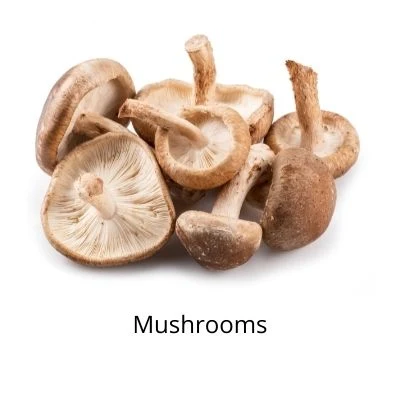
Mushrooms are rich in meaty umami flavor, mushrooms are high in the B vitamins niacin, riboflavin, and pantothenic acid, which preserve heart health. Concurring to the Academy of Nutrition and Dietetics, B vitamins are vital for the body’s capacity to produce energy, heart involved. A 1-cup serving of ‘shrooms only puts you back 1.58 grams of net carbs. (5)
2. Carrots
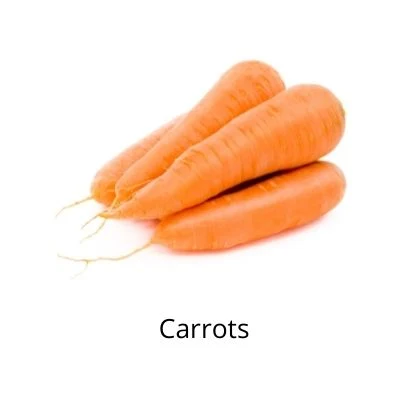
Carrots (3.75 grams of net carbs every half a cup) are stacked with beta carotene, a compound our body converts into vitamin A. Evidently, that half-cup serving delivers 184% of your day-to-day vitamin A demands. Concurring to the U.S. National Library of Medicine, vitamin A works as an influential antioxidant in the body, helping to stave off cellular deterioration. (6)
3. Spinach
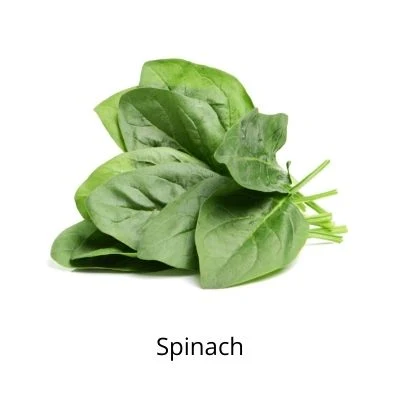
At simply 0.96 grams of net carbs every 3-cup serving, these leafy greens are an ideal low-carb vegetable that you can relish in different ways. Spinach is exceptionally nutrient-rich and comprises antioxidants, folic acid, and iron. It is also high in vitamin K and the mineral manganese, concurring with the USDA. (7)
4. Celery

Barely 2.02 grams of net carbs every two medium stalks, celery is a tremendous low-carb vegetable for snacking, as it makes the accurate vessel for all sorts of dips, from guacamole to hummus. It is also a useful source of vitamin C. (8)
5. Tomatoes
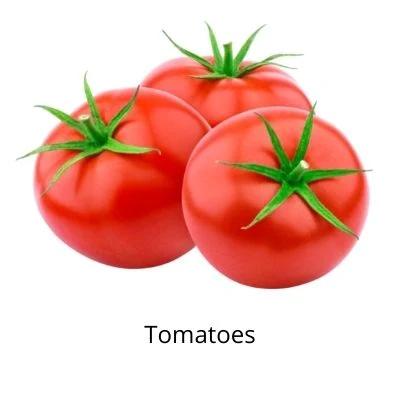
Succulent red tomatoes are well-known for comprising a certain antioxidant named lycopene, which is recognized to decrease the danger of heart disease and some cancers. A 2013 paper disseminated in the Journal of Agricultural and Food Chemistry supports this article—and proposes that the antioxidant may also have antibiotic and anti-inflammatory properties, as well. 1 serving of tomatoes (1 cup, chopped) comprises 4.84 grams of net carbs. (9)
6. Lettuce
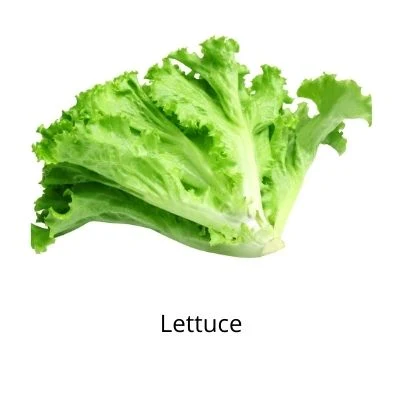
Though the numerous species of lettuce contain differing proportions of carbs and give barely various nutritional perks, your regular 1-cup serving comprises just about 5 calories and about half a gram of net carbs. Also, lettuce generally includes some omega-3 fatty acids. These healthy fats are understood to bolster cardiovascular, immune, and hormonal health, concurring with the National Institutes of Health. (10)
7. Asparagus
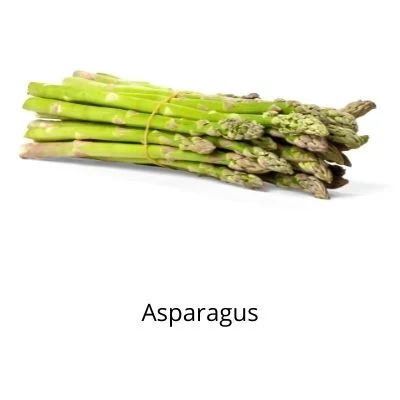
Scrumptious asparagus, which comprises 2.94 grams of net carbs (per cup), feels right at home beside a pleasant cut of steak and gives iron, vitamin K, and fiber. It also gives 35% and 15% of the day-to-day recommendation for antioxidants vitamin C and vitamin A, accordingly. (11)
8. Kohlrabi
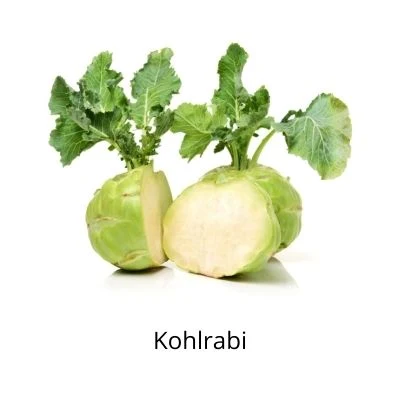
At 3.51 grams of net carbs per serving (1 cup, chopped) cabbage-like kohlrabi is another extraordinary vegetable to put into your low-carb process. Pertained to different low-carb veggies, kohlrabi is very high in fiber (approximately five grams each serving!), so it is certain to make any meal extra satisfying. (12)
9. Green Bell Peppers
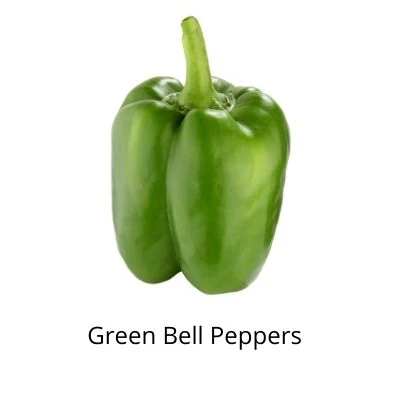
While sweeter red bell peppers comprise about six grams of net carbs per cup (sliced), green bell peppers weigh in at merely 4.38 grams of net carbs. However milder in taste, green bell peppers still store significant nutrition—and are particularly high in vitamin C. One cup of sliced pepper provides 120 milligrams of this popular antioxidant (that is more than 130% of men’s day-to-day vitamin C requirements and 160% of a woman’s day-to-day requirements.) (13)
10. Brussels Sprouts
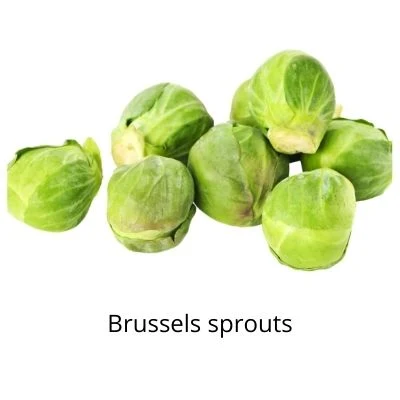
Brussels sprouts fall on the upper end of the low-carb vegetable spectrum (they include about 5 grams of net carbs every 3/4-cup serving). Nevertheless, with about three grams of fiber in that serving, they are an extraordinary source of fiber. In addition to delivering 120% of your day-to-day vitamin C requirement (and 15% of your daily vitamin A), they also taste flavorful when charred in olive oil. (14)
11. Cabbage
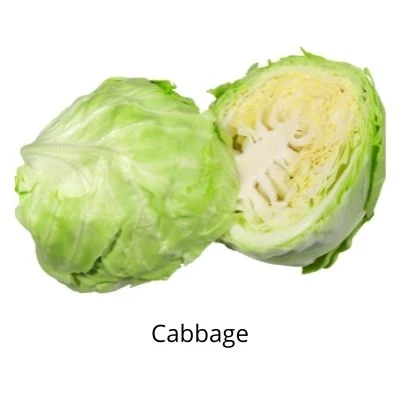
However not the most attractive of vegetables, cabbage is exquisitely low in calories (less than 18 every serving—1 cup, shredded) and carbohydrates (2.31 net grams every serving). It is also a solid source of vitamin C, contributing more than a third of your day-to-day requirements. (15)
12. Kale
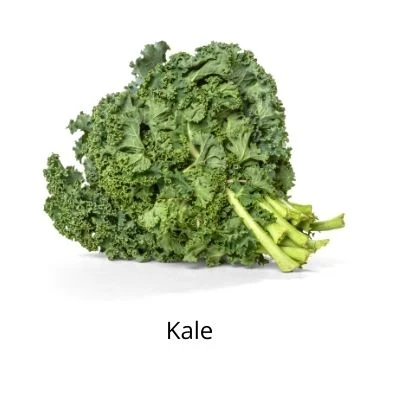
This essentially carb-less leafy green (it comprises barely 0.07 grams of net carbs every 1-cup serving) includes a substantial amount of antioxidants, comprising quercetin and kaempferol. Quercetin, specifically, has been linked with numerous advantages, including reducing blood pressure, boosting immune capacity, and giving some immunity against diabetes, concurring to a 2017 journal published in Nutrients. (16)
13. Green Beans
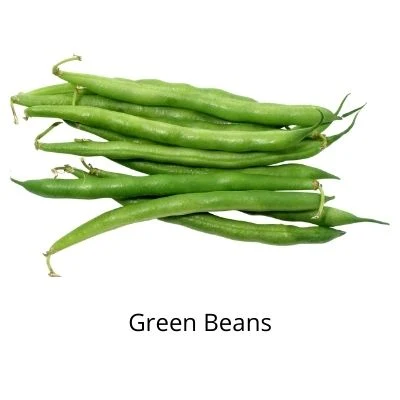
Green beans (which comprise 3.96 grams of net carbs every ¾-cup serving) give approximately 10% of your everyday requirements for the B vitamin folic acid every 1 cup. Folic acid, a form of folate (also known as vitamin B9), is vital for cell division and DNA generation, which is why breastfeeding and pregnant women require more than the normal adult, concurring to the National Institutes of Health. (17)
14. Eggplant
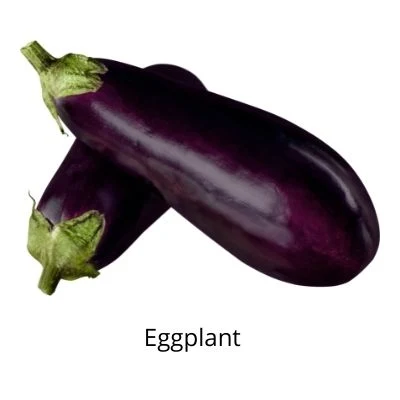
Eggplant may not be low-carb when crumbed and stacked in an eggplant farm, but the violet veggie comprises merely 2.36 grams of net carbs every cup (cubed) on its own. However, not a powerhouse source of minerals and vitamins, eggplant is a stuffing vegetable, contributing three grams (12% of your day-to-day needs) of fiber. (18)
15. Cucumbers
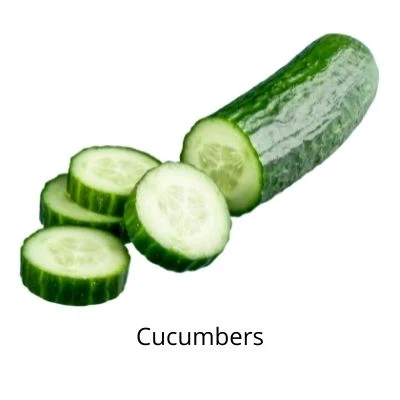
Crunchy, exciting cucumbers comprise barely 1.74 grams of net carbs every 1-cup serving—and are a considerable way to absorb your water since they are made up of about 95% water. Cukes short for cucumber also include polyphenols known as lignans, which help decrease inflammation. (19)
15 Best Low Carbs Fruits
When it comes to reducing carbohydrates, it is not only bread and pastries you have to consider. Carbs are also in fruits (which justifies their sweetness), so logic might propose eliminating this sort of food, but no need to.
Trista Best is a licensed dietitian at Balance One Supplements, an online vitamin supplement shop established in Wilmington, Delaware. Asserted, “While different low-carb diets suggest evading fruit because it tends to be higher in carbohydrates due to its raw sugar, it is not favorable for health. Fruit comprises multiple health-promoting nutrients, and eliminating them from the diet entirely could be harmful”. For instance, fruit (as well as vegetables) gives heart-healthy dietary fiber, along with minerals and vitamins that the body utilizes as antioxidants to combat several chronic diseases, points out the earlier research. (20)
You have to realize that incorporating fruit in your diet, even a low-carb one, is effective. But that does not mean that anything leaves. A basic low-carb diet includes consuming no more than 20 grams (g) to 100 g of net carbs each day, hingeing on your weight loss objectives.
Numerous fruits possess a lower amount of net carbs than others, making them a reasonable alternative. (Net carbs are total carbs minus sugar alcohols and fiber, and are frequently estimated in low-carb dietings.) So to beat your weight loss goal, it helps to select fruits with the lowest amount of carbs.
Here is our list of Low carbs Fruits;
1. Oranges

Oranges are another option on a low-carb diet, with a little orange comprising 9 g of net carbs, according to the USDA. Oranges are a great source of potassium, which can help reduce blood pressure, says Wong. Prior research discovered that enhancing the consumption of high-potassium foods may have the same positive impact on blood pressure as obtaining potassium supplements. (21)
Oranges also stack in a whopping proportion of immune-boosting vitamin C, Wong explains. The same little orange contains 174 mg of potassium (3.7 % of the DV) and 51 mg of vitamin C (57 % of the DV).
2. Papaya (Paw-Paw)
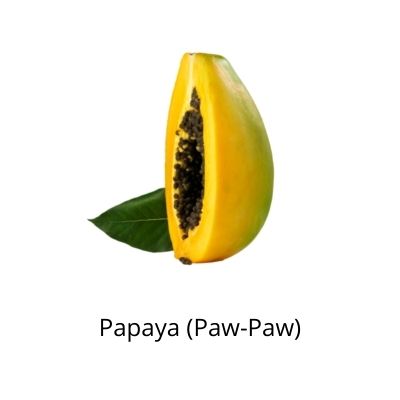
According to USDA, papaya (11 grams of sugar, 16 grams of carb, and 2.5 grams of fiber in a cup of diced fruit): Of the tropical fruits, papaya is among the lowest in sugar. (22)
3. Lemons
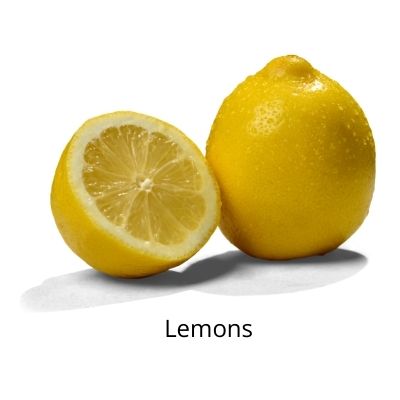
Just only 3.8 g of net carbs for each fruit, per USDA, lemons are another fruit to put into your safe list. Whether you sprinkle lemon juice over a dish or put in it a glass of water, one lemon comprises 80 mg of potassium (2% of the DV) and 31 mg of vitamin C (34% of the DV). (23)
4. Strawberries

Strawberries are an outstanding fruit for anyone following a low-carb diet — but even if you select raspberries, blackberries, or blueberries, berries as a quantity possess little net carbs. So when consuming in moderateness, they are a reasonable option for a sweet yet low-carb snack. Moreover, berries are a nutritious alternative. “Berries are not just low carb, but they also an adequate source of antioxidants, fiber, and vitamin C,” says Megan Wong, a licensed dietitian working with AlgaeCal, a company established in Vancouver, British Columbia, that gives accessible nutrition data, recipes, and workouts instructions for bone health.
Concurring to the U.S. Department of Agriculture (USDA), 1 cup of entire strawberries, for instance, has 8.2 g of net carbs, 2.9 g of fiber (10% of the day-to-day value, or DV), and about 85 milligrams (mg) of vitamin C (for 94% of the DV). For collation’s sake, a cup of raspberries possesses 6.7 g of net carbs, 8.0 g of fiber (29% of the DV), and 32.2 mg of vitamin C (36% of the DV). (24)
5. Nectarines
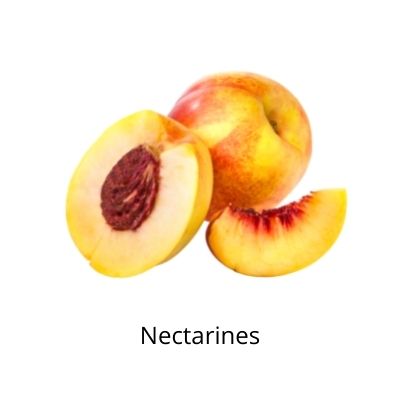
According to USDA, nectarines (11 grams of sugar, 15 grams of carbs, and 2.4 grams of fiber for every medium fruit): Nectarines are an adequate source of fiber and the tastiest when ripe. (25)
6. Grapefruit

Another alternative on a low-carb diet is grapefruit, with one small fruit comprising 14 g of net carbs, concurring with the USDA. Grapefruit is also an exceptional source of vitamin C, with 69 mg (76% of the DV). It also possesses 278 mg of potassium (6% of the DV). (26)
If you possess high blood pressure, the potassium in grapefruit may help stabilize the quantity of sodium and fluid in your body. This can help reduce blood pressure, decreasing your risk of stroke and heart disease, explains the American Heart Association (AHA). (27)
As a warning, nevertheless, grapefruit can alter with specific medications, advises the AHA. Discuss with your pharmacist or doctor if you are using drugs to deal with high cholesterol or high blood pressure, ameliorate allergy symptoms, or stave off blood clots.
7. Avocados

Some people add avocados in the vegetable classification, but it is a fruit, remarks Jenna Appel, RD, CDCES, who controls and runs Appel Nutrition Inc., a company established in South Florida that gives individualized and organizational nutrition counseling.
If you want to keep your carb consumption low, a California avocado possesses only 2.6 g of net carbs and a healthy amount of monounsaturated fats, concurring with the USDA. (That is just 1.3 g of net carbs every half of a fruit!) Monounsaturated fats may help reduce DL bad cholesterol, reports Appel. (28)
According to a randomized controlled trial printed in February 2020 in the Journal of Nutrition, one avocado a day may help reduce LDL cholesterol in obese and overweight adults. “You can make a raw guacamole, put in avocado to egg dishes, or top toast with this low-carb fruit,” tells Appel.
8. Honeydew
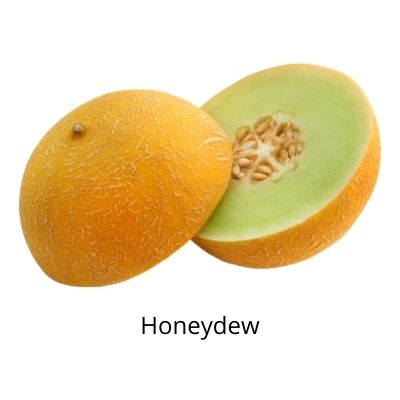
One cup of honeydew melon possesses 14 g of net carbs, according to the USDA, and, related to cantaloupe, it comprises antioxidants to help defend against cell destruction. Antioxidants in honeydew also include zeaxanthin and lutein. According to an earlier study, zeaxanthin and lutein may give preservation against age-related macular deterioration, as they can defend against cell destruction in the eyes. (29)
Honeydew is also an enormous source of vitamin C, with a cup comprising 31 mg (34% of the DV). Vitamin C is an influential antioxidant that can enhance collagen, aid immunity, and play a part in helping to stave off cancer, concurring to the National Institute of Health (NIH).
9. Olives
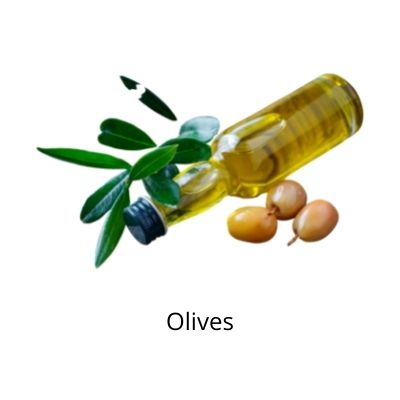
According to the USDA, a cup of entire olives comprises 4.5 g of net carbs, 1.9 g of fatty acids, approximately 4.9 mg of iron (about 27% of the DV), and 2.4 mg of vitamin E (about 16% of the DV). “Since olives are cured, they are also high in salt, so it is a good indication to keep an eye On your amount size,” warns Izquierdo. (30)
“True, olives are fruit too, and they are a source of unsaturated fats, as well as vitamin E and iron,” says Amanda Izquierdo, a Chicago-based licensed dietitian, and food and nutrition specialist. Healthfuller unsaturated fats, implicating monounsaturated and polyunsaturated fatty acids, can stimulate heart health and decrease the risk of type 2 diabetes when they restore saturated fat, concurring to the Mayo Clinic.
10. Cantaloupe
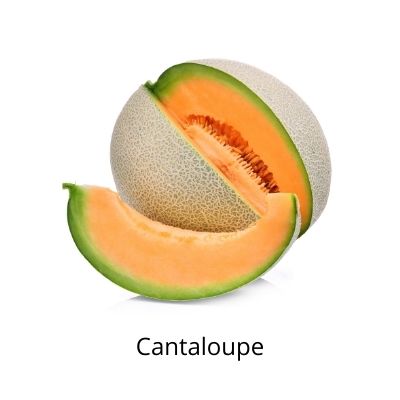
One cup of cantaloupe possesses 11.3 g of net carbs, 57 mg of vitamin C (63% of the DV), 264 mcg of vitamin A (29% of the DV), and 417 mg of potassium (9% of the DV), per information provided by the USDA. (31)
According to research published in June 2019 in Foods, vitamin C in cantaloupe has different medicinal purposes that may defend against disease — it possesses anti-inflammatory, antioxidant, and possibly anti-cancer properties. (32)
11. Cherries

The USDA also reports that about ½ cup of cherries possess about 9 g of net carbs, along with 7 mg of vitamin C (7.7% of DV), which is an antioxidant. (33)
“Cherries are a good source of antioxidants, which help defend against cell damage, and tart cherries are a great source of melatonin, which may facilitate sleep,” explains Leininger. Findings from a small pilot study published in the March–April 2018 edition of the American Journal of Therapeutics discovered that tart cherry juice was able to boost sleep time by 84 minutes in patients with insomnia. (34)
12. Bananas

According to USDA, Concurring to USDA, bananas (14.4 grams of sugar, 27 grams of carbs, and 3.1 grams of fiber for every normal banana): This most consumed fruit is effective and delightful, but remember that bananas are more plentiful in carbs and sugar than other alternatives. (35)
13. Watermelon

One cup of watermelon comprises 11 g of net carbs and 6,890 mcg of lycopene. It also possesses 170 mg of potassium (4% of the DV) and about 12 mg Colorado-based(13% of the DV), concurring with the USDA.
If you are striving to reduce carbs and boost hydration, watermelon is a fruit of preference, as it is highly hydrating, tell Makayla Meixner, a Vail, Colorado-based licensed dietitian with GreenChoice, an app that aims to help consumers acquire adequate food products for their health and the world. Concurring to the USDA, 1 cup of watermelon comprises 139 g of water. (36)
“Watermelon is incredibly rich in a plant compound known as lycopene, which is liable for its antioxidant red color & qualities,” she explains. Concurring to a paper Puca February 2019 in the International Journal of Food Properties, “watermelon amasses the highest bioavailable lycopene, about 60% more than a tomato.” “Bioavailability” implies that the substance can be assimilated into the body. The research notes that lycopene can also decrease inflammation throughout the body, which might help decrease the risk of specific cancers like breast, lung, stomach, and colon. Chronic inflammation can harm DNA and can cause cancer, advises the National Cancer Institute. (37)
14. Peaches

Concurring to the USDA, one small peach comprises 10.5 g of net carbs, 247 mg of potassium (5% of the DV), 21 micrograms (mcg) of vitamin A (2% of the DV), and approximately 9 mg of vitamin C (10% of the DV). (40)
“Peaches are a very crucial picnic day’s fruit because they are so amenable — you can actually consume peaches fresh, combine peaches with salad, or even toss them on the grill as a delicious side dish for your dinner,” explains Leininger.
The phytochemicals (antioxidants) that bestow peaches their orange/yellow color help improve eye health too, she explains. More research is required, but according to other preceding research, one to two servings of raw peaches (and other vegetables and fruits high in these nutrients) were discovered to have a protective impact against glaucoma in aged African American women. Zeaxanthin and lutein are two phytochemicals linked with eye health, as they stimulate healthy cells in the eyes and block destructive lightwaves, concurring to the American Optometric Association (AOA). (41)
15. Kiwi

It is presumably one of the sweetest fruits, so you might believe it is off-limits on a low-carb diet — but you can consume kiwi when following this approach.
One kiwi with the skin on (for extra fiber) possesses 8 g of net carbs, 215 mg of potassium (about 5% of the DV), 24 mg of calcium (about 2% of the DV), and 64 mg of vitamin C (71% of the DV), explains the USDA. “Kiwis are also packed with vitamin C,” tells Shannon Leininger, a licensed dietitian and diabetes care educator established in Las Vegas, Nevada. (42)
Concurring to a former study, the antioxidants in kiwi may help boost role, which can help reduce the danger of the cold & flu.
“They are great fresh or even incorporated into a homemade Popsicle or smoothie,” persists Leininger.
Precautions
If you are a patient with diabetes, you may want to discuss it with your doctor or a licensed dietitian to help you formulate an eating plan that integrates fruit and vegetables appropriately. When you are trying to limit sugar, fruit and vegetables are better choices for a sweet craving as it comprises fiber, vitamins, and minerals. Just keep in mind the types of vegetables and fruits you are selecting and the portion size.
Conclusion
Low-carb dieting does not have to represent only protein and fat all the time. Fruits and vegetables can play a vital nutritional role in your low-carb eating plan.
Follow these guides of low-carb fruit and vegetable complementary values, to assist you in making your plate more delightful and most of all your nutrition more wholesome as you stick to your low-carb plan.
Frequently Asked Questions (FAQ)
Will I feel tired and weak while following these low-carb diets?
I have heard the opposite and you will likely undergo more energy and feel less tired while on a low-carb diet.
If you feel tired and weak, you might ponder improving your electrolytes or boosting your carb consumption by a few grams every day.
Is there a chance of muscle damage on low-carb diets?
Many diets present this danger, but the high protein and ketone levels help reduce this situation.
It is always advised for anyone to take part in typical muscle and strength exercise as part of an all-around healthy lifestyle.
I have heard low carb eating can cause urine to smell fruity? How true is this assertion?
It occurs, but it is not a problem. It is just the effect of the excretion of offshoots developed during ketosis.
